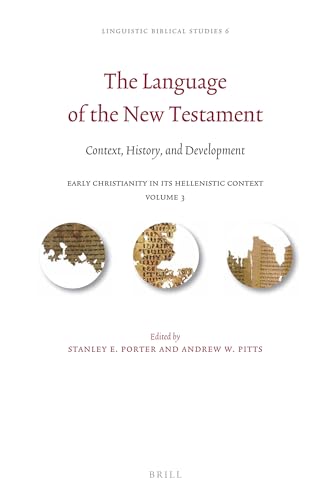Dictionary of the Old Testament Prophets
Written by Mark J. Boda and J. Gordon McConville, eds Reviewed By Jerry HwangThe publication of this volume completes IVP’s collection of eight “Black Dictionaries” on the Old and New Testaments (though the Dictionary of Jesus and the Gospels, the first in the set from 1992, has just been reissued in a second edition). In keeping with its predecessors on the Pentateuch (2002), Historical Books (2005), and Wisdom, Poetry and Writings (2008), the Dictionary of the Old Testament Prophets aims to bring the most recent developments in OT scholarship to a broader audience. The editors, Mark Boda and Gordon McConville, have assembled a team of international contributors to provide articles on every aspect of Prophets scholarship. In addition to entries on each of the individual books in the OT prophetic corpus (including Lamentations and Daniel, two books grouped by the Jewish canon among the Writings), the Dictionary contains articles on important theological themes (e.g., “Angels”), history of interpretation for longer prophetic books (e.g., “Jeremiah: History of Interpretation”), exegesis and hermeneutics (e.g., “Canonical Criticism”), biblical theology (e.g., “Prophets in the New Testament”), and interdisciplinary methods (e.g., “Feminist Interpretation”). Since it is impossible to do justice to the diversity and comprehensiveness of the Dictionary (113 articles by 94 authors) in a brief review, I will highlight two articles that are representative of the character of the work. As a whole, the Dictionary displays an uneven engagement with historical-critical views on the OT Prophets that will require discernment on the part of evangelical readers.
On the one hand, Iain Duguid’s article on “Ezekiel: History of Interpretation” recognizes the importance of reception history for interpreters of Ezekiel. Following an overview of Ezekiel’s influence on the rest of the OT itself, Duguid overviews rabbinic and early Christian interpretation, medieval and Reformation interpretation, and modern interpretation. Most notable among the modern interpretations that Duguid surveys is the application of the oracles concerning Gog and Magog (i.e., chs. 38–39) to contemporary events. From the experienced hand of a scholar who has published a full-length commentary in an evangelical series (NIV Application Commentary; Zondervan, 1999), Duguid’s article exemplifies the best of evangelical OT scholarship in paying close attention to the biblical text while showing admirable balance in its engagement with alternative views. Duguid sifts through a large amount of reception history and critical scholarship to show what is useful for illuminating our understanding of Ezekiel.
On the other hand, the article on “Isaiah: Book of” by H. G. M. Williamson offers the latest scholarship on Isaiah from someone who identifies himself as evangelical, but whose publications have embraced the critical consensus that the book of Isaiah was composed and edited over the course of several centuries. Without so much as naming the conservative scholars with whom he disagrees, Williamson summarily dismisses their objections to his view on the composition of Isaiah: “I do not find the idea of unity of authorship to be either plausible or necessary. Despite frequent claims to the contrary by conservative scholars, this conclusion has nothing to do with belief or not in the power of predictive prophecy; after all, there is still predictive prophecy included in all parts of the book even on the most radical of critical positions” (p. 370). By excluding conservative views on composition from the scholarly discussion (e.g., John Oswalt’s magisterial 2-volume commentary in the New International Commentary on the OT series), Williamson’s article undercuts the claim of the Dictionary to provide “A Compendium of Contemporary Biblical Scholarship” (the subtitle of the Dictionary on the front cover). In Williamson’s article at least, the caricature of conservative approaches as being uninformed means that the Dictionary represents only one side of the scholarly conversation. This observation is not meant to imply that the Dictionary opposes conservative scholarship in a thoroughgoing way (by contrast, for example, see Douglas Stuart’s well-reasoned defense of the historicity of Jonah on pp. 460–61), only to highlight the degree to which the Dictionary is inconsistent in its approach to critical scholarship and must therefore be used with discretion.
In summary, the publication of the Dictionary of the Old Testament Prophets is a major publishing event that deserves a wide reception for its breadth and depth of coverage. For those who have already wrestled through the relevant historical-critical issues, the Dictionary will continually prove its usefulness as the first work off the shelf for scholarly work, especially in providing comprehensive bibliographies for further research. But because of the occasional tendency of the Dictionary to present critical scholarship to the exclusion of conservative views, non-specialists will also need to consult evangelical introductions to the OT Prophets (e.g., C. Hassell Bullock, An Introduction to the Old Testament Prophetic Books [new ed.; Moody, 2007]; Willem VanGemeren, Interpreting the Prophetic Word: An Introduction to the Prophetic Literature of the Old Testament [Zondervan, 1996]) to obtain a more balanced picture of OT scholarship.
Jerry Hwang
Jerry Hwang
Singapore Bible College
Republic of Singapore
Other Articles in this Issue
Too often people think of the Reformation in terms of an abstract theological debate...
Abstract: Evangelical Faith and the Challenge of Historical Criticism, edited by Christopher Hays and Christopher Ansberry, argues that evangelical scholars have failed to embrace historical criticism to the extent that they could and should...
Thomas Prince, editor of The Christian History—the first religious periodical in American history—could hardly have invented the Great Awakening, as Frank Lambert argues...
Theology is first and foremost about who God is and then about what he has done...
I would like to consider several elements in reviewing Bray’s work...







